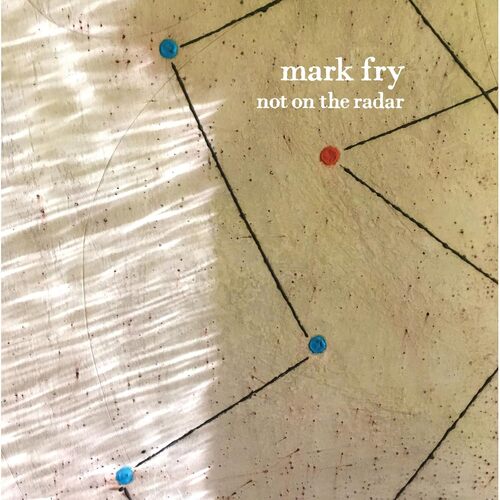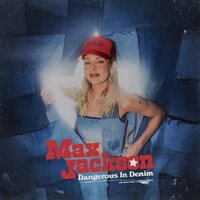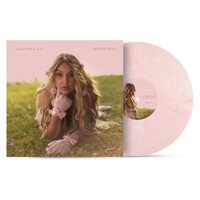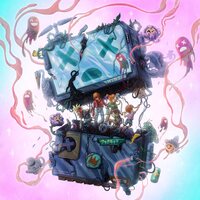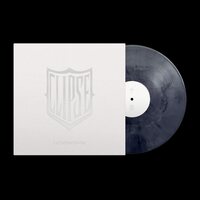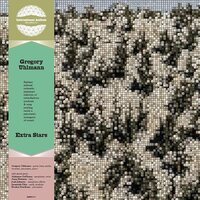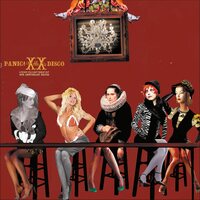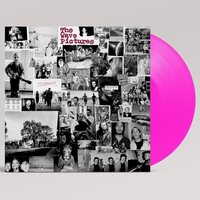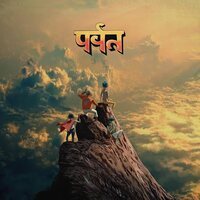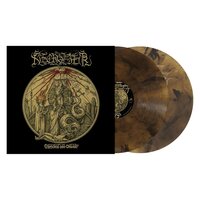In March of 2024, singer-songwriter Mark Fry staged a rare concert in the picturesque Normandy village of Varengeville-sur-Mer, once the rural hideaway of legendary painter Georges Braque, now home to a contemporary arts space with a capacious gallery that also serves as a striking performance venue . The sold-out show, featuring the singer and his four-piece band, would prove to be a tour de force, offering a timely audit of the 71-year-old Fry’s still-evolving songwriting canon, with a track list judiciously plucked from both his 21st century solo albums and his cult 1972 acid-folk benchmark Dreaming With Alice alongside a tranche of previously unheard material, including one song that had begun life in the course of Fry’s 1980s travels in Mali, West Africa, to be completed, just a touch belatedly, a month before the show.
Indeed, several of the new songs aired at the Varengeville show were the product of an extended 2023 and early 2024 creative roll, and, harnessing the momentum, Fry was eager to record them for what promised to be a bold new album, his first since 2014’s South Wind, Clear Sky. Having rehearsed for the gallery concert with his band – guitarist Iain Ross (Barry Adamson, Laika), double bassist John Parker (Nizlopi), keyboardist/vocalist Angèle David-Guillou (Piano Magic, Klima) and percussionist David Sheppard (Snow Palms, Ellis Island Sound) – in his painting studio deep in the Norman countryside, it seemed logical to use the same creative space to cut a new longplayer, with a nod to illustrious forebears such as The Band’s Music from Big Pink or Cowboy Junkies’ Trinity Sessions.
With David Sheppard producing, assisted by gifted sound engineer/musical wizard Ian Button (Death in Vegas, Wreckless Eric), the majority of the album was to be captured live, the emphasis on spontaneity, the occasional sonic intrusion from Norman weather and wildlife welcomed as part of the documentary feel of the recording. Several hundred metres of cabling, some vintage microphones, an Indian harmonium and an ethereal-sounding shahi baaja were installed in the sun-dappled studio, alongside guitars, amps, drums and Mark’s upright piano, and recording would commence during an idyllic Norman heatwave in mid-June 2024. Remembering to turn off a nearby electric cattle fence that produced what for a while was a baffling hum, the ensemble worked their way through just shy of a dozen new Mark Fry originals in a little over a week, the opportunity to investigate a variety of different approaches and arrangement ideas, without the pressure of a ticking studio clock, a blessing for all involved – as were unhurried, alfresco meals taken in the shade of an ancient quince tree.
The musical results would prove instantly persuasive and consistently magical: the quieter, more pastoral songs proffering an almost uncanny intimacy, the more up-tempo numbers zinging with dynamic immediacy. Most importantly, Mark’s singing voice (typically described by reviewers as some variation on “chocolate cream” when not being compared to his immediate forebears Nick Drake and/or Kevin Ayers...) seemingly buffed to a new radiance, his delivery taking on hitherto unheard shades of both delicacy and gravity and, here and there, a new-found urbane laconicism. It’s difficult to think of a comparably aged singer whose voice remains so unadulterated and affecting. These could be the vocal takes of a 35-year-old, even if Fry’s lyrics, many of them poetic disquisitions on ebbing time, mortality and nature’s waxing and waning cycles, here and there leavened with sardonic humour, tell a contrasting story.
The songs on what was to be dubbed Not on the Radar (an album title speaking to both Fry’s rural isolation as well as his existential disconnection from the entrapments of modern life), are surely among the finest in his now considerable oeuvre. Whether it’s the touchingly ingenuous, vaguely Bill Fay-like ‘Only Love’ (a sort of ‘love song to love’) or the similarly numinous and romantic ‘Where Would I Be’ with its haunting choral coda, the aching nocturne ‘Daybreak’ or the atmospheric, piano-dappled ballads ‘Where the Water Meets the Land’ and ‘Big Red Sun’, this is timeless, personal and genuinely moving songwriting given wing by some beautifully restrained, simpatico ensemble playing.
While building on the fertile, acoustic guitar-based landscapes of earlier Mark Fry solo longplayers, Not on the Radar equally embraces some of the grainier pastoralism of I Lived in Trees, his 2011 collaboration with The A. Lords, and even allows the occasional waft of psychedelia to tint proceedings, notably whenever a plangent shahi baaja arpeggio ripples across the soundscape. But there are unprecedented Mark Fry dispatches here, too, not least the propulsive, guitar-less title track, its insistent percussive groove and electronic glints framing a vocal of dispassionate dislocation that’s more redolent of I’m Your Man-era Leonard Cohen or something by Serge Gainsbourg than anything identifiably ‘folk’. Likewise, the effervescent, African pop-tinged ‘Stormy Sunday’ finds Fry again abandoning his signature six-string while deploying meteorological metaphors against a colourful tapestry of tremolo and highlife guitars, buoyant percussion and wild penny whistles.
Elsewhere, ‘Jamais À L’Heure’ (preceded by Angèle David-Guillou’s endearing reading of the traditional French ballad Aux Marches Du Palais, sung against the clinking of glasses at one of those quince tree-shaded meals) and the semi-ambient, spoken word, almost painterly ‘Rainbow Days’ evoke a tangible sense of the bucolic environment from which all the music on this sensuous album springs. The record closes with the spare but deeply affecting ‘If I Could’ – a sort of life audit as folk hymn, its two brief but perfectly harmonised choruses encapsulating what is, to all intents and purposes, Mark Fry’s Je Ne Regrette Rien, its counsel, to embrace the darkness of life as readily as its light, offering a typically poignant note – simultaneously celebratory and rueful – on which to conclude an album whose meticulous marriage of the sanguine and the elegiac is perhaps its defining characteristic.
- 1. Only Love
- 2. Big Red Sun
- 3. Stormy Sunday
- 4. Where The Water Meets The Land
- 5. Not On The Radar
- 6. Daybreak
- 7. Where Would I Be
- 8. Jamais À L’Heure
- 9. Rainbow Days
- 10. If I Could
- 11. Digital only bonus track : Not On The Radar (Richard Norris Remix)
